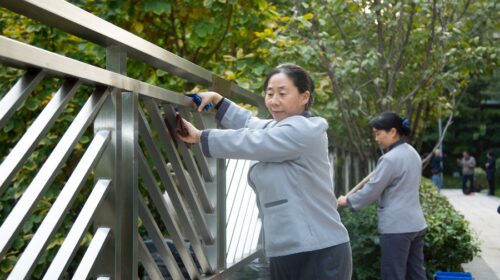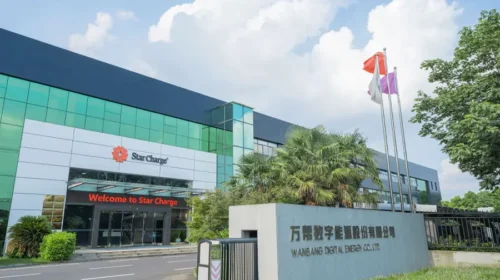China Travel International sheds property unit to focus on core business

The travel and tourism company will spin off its tourist property segment and significantly reduce its capital in a major restructuring
Key Takeaways:
- China Travel International will spin off its property arm, giving shareholders the option of receiving a cash payment of HK$0.336 per share as part of the divestment
- The move comes as the company shifts its focus towards developing scenic tourist attractions and related businesses
By Lau Chi Hang
When China’s real estate market was still hot several years ago, China Travel International Investment Hong Kong Ltd. (0308.HK) touted its tourist property unit as a major growth engine. Fast forward to the present, when real estate has gone from hot property to albatross asset in just a few years. Seeking to shed that heavy burden, the company has announced an abrupt about-face with a major overhaul taking it back to its core travel roots.
The revamp will see China Travel International divest its tourist real estate business, which will be moved into a private company. Holders of the company’s stock can choose to get shares of the new private company, or to receive HK$0.336 in cash for each share of China Travel International they currently hold. The company’s closing price of HK$1.53 before the announcement means the cash option equates to about a 22% return on each share.
Disclosure documents peg the net asset value of China Travel International’s property assets at HK$4.9 billion ($629 million). Thus, the company’s current share base of 5.537 billion shares would translate to HK$0.886 per share – significantly higher than the actual cash payout.
Concurrently, China Travel International is proposing a dramatic capital reduction that would shrink its issued share capital to HK$720 million from HK$9.22 billion. The eliminated HK$8.5 billion will be credited directly to the company’s retained profits.
Weighed down by property losses
The tourism real estate business involves developing property on land near tourist sites like theme parks or scenic areas. China Travel International has five such projects: a resort hotel and residential complex development at the Ocean Spring Resort in Zhuhai; a resort hotel and hot spring at the Ocean Spring Resort in Xianyang; a resort hotel and residences in Anji, a city in East China’s Zhejiang province; a commercial complex in Shenzhen; and the Jintang project in Chengdu, capital of Southwest China’s Sichuan province.
China Travel International’s planned reorganization reflects the grim state of its tourism real estate business. That operation’s revenues fell from HK$629 million in 2023 to HK$459 million last year. It lost HK$461 million in 2023 and another HK$239 million last year. The unit’s condition continued to slide this year, generating just HK$147 million in revenue and a HK$192 million loss in the first six months of 2025.
Persistent write-downs have added to the pain. Those include fair value losses on investment properties totaling HK$90.72 million in 2022 and HK$19.13 million in 2023, while the figure ballooned to HK$222 million in 2024. Impairment losses in the first half of this year continued to grow, jumping 24% year-on-year to HK$123 million.
Dragged down by its property exposure, China Travel International’s net profit tumbled 56% to HK$106 million last year. The company fell into the red in the first half of this year, registering a HK$86.85 million loss, versus a profit of HK$63.23 million in the year-ago period.
Return to travel focus
This restructuring looks like a shrewd move for China Travel International. With the Chinese property market still depressed and no clear recovery in sight, selling tourism-adjacent properties is difficult. At the same time, such property development requires substantial investment, straining the company’s cash flow. By spinning off the property unit, the listed company can reduce the drag from that segment and avoid the steady flow of impairment charges.
What’s more, losing its property development and maintenance business will allow China Travel International to focus on its core travel business, which has remained relatively strong even in the face of China’s slowing economy. That means the company can return to its tourism and travel roots that still have some growth potential, rather than waste its resources on a sinking property sector with no bottom in sight.
Just half a month before its restructuring announcement, China Travel International acquired the ski area, hotels, apartments and commercial street at the Songhua Lake Ski Resort in Jilin province from Vanke, along with the ski resort’s management company, for 300 million yuan. The deal also included China Travel International’s assumption of the project’s 755 million yuan in bank loans, showing the company is returning its focus to tourism, with an eye to further expanding its urban and leisure projects.
Better market positioning
Property projects are prone to losses in the current sector downturn, while tourism attractions carry much higher profit margins. By spinning off the property segment, investors can more easily calculate the company’s prospects. Moreover, the offloading of its property business could help to lift China Tourism International’s valuation.
Tourism-related stocks have been a relative favorite among investors lately, as the sector bounced back strongly post-pandemic, boosting shares of companies like Trip.com (TCOM.US; 9961.HK) and Tongcheng Travel (0780.HK). While China Travel International is smaller, the property spinoff will turn it into a purer tourism and travel play, making it easier for investors to understand its positioning. That could work to its advantage if it can be similarly valued to Trip.com and Tongcheng, which both trade at price-to-earnings (P/E) ratios of about 19, once it returns to profitability.
China Travel International’s restructuring announcement wasn’t especially well timed, coming just before the benchmark Hang Seng Index fell more than 400 points. Despite that, the company’s stock rose the day after the announcement, surging as much as 15% as investors applauded the property divestment. While it later gave back some of the gains, it still managed to close up 8.5% for the day.
That said, the property market will have to bottom out at some point, which could happen sooner rather than later following several years of destocking and government policy support. If and when that happens, China Travel International will miss out on the turnaround.
To subscribe to Bamboo Works weekly free newsletter, click here





